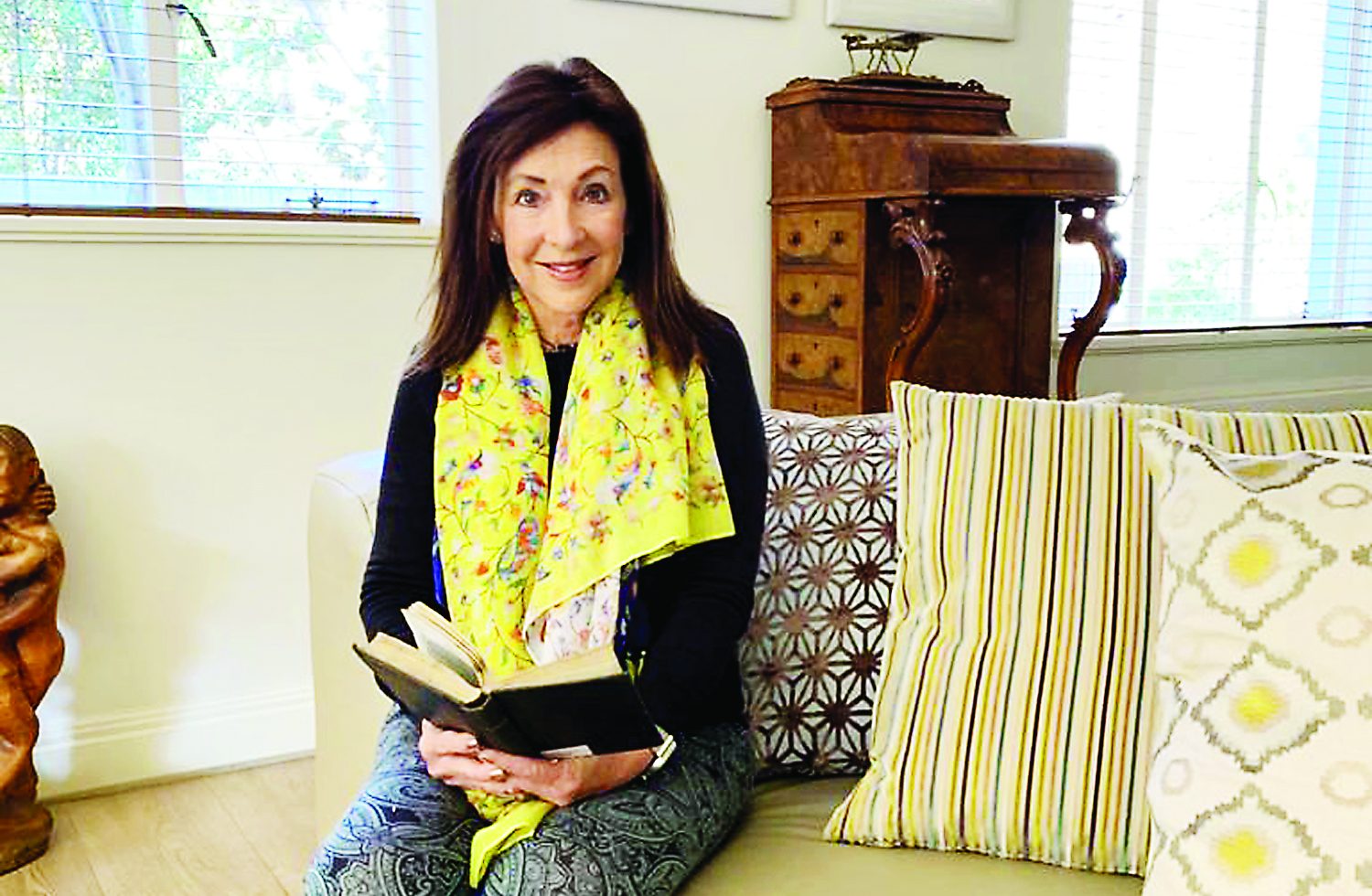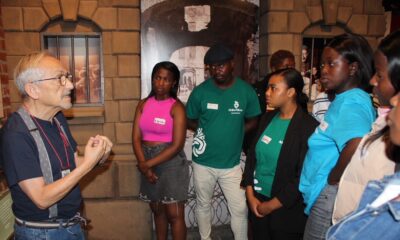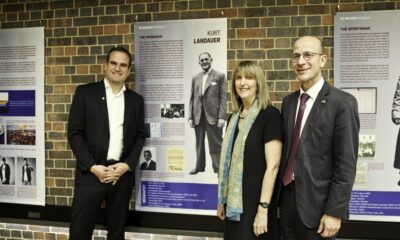
Featured Item

Looted heirloom finds its way back to SA family
Debbie Meyer grew up close to her grandmother, who was fortunate enough to have escaped Nazi Germany before the horrors of the Holocaust.
However, when she learned that a looted family heirloom had been discovered and was being returned to her family, that connection was strengthened in a way she could never have imagined.
On 7 July, Meyer, a volunteer at the Johannesburg Holocaust & Genocide Centre (JHGC), received a package containing her maternal grandmother’s Jewish song book given to her in 1927 when she was about 13 years old.
Published in 1836, the book is a family heirloom which passed through the hands of other family members before it came to Meyer’s grandmother, Anneliese Roer. It had been discovered in the library of the School for Jewish Studies in Heidelberg, Germany, by a librarian determined to return it to its rightful owners.
“I knew my grandparents were refugees,” Meyer told the SA Jewish Report. “I knew their story. I went back with my gran to her native town of Minden in Germany. She showed me where she had lived, where she and her family had shopped, and other places of her childhood.
“I didn’t know about the book at all, so when it arrived via courier, I didn’t know what to expect. It was incredible to open the package and see it. I was just blown away.”
The restoration is the culmination of efforts across three different continents. The process of restitution began earlier this year when German librarian Philipp Zschommler set out to trace the history of the book.
“I started to work for this project at the beginning of 2019,” he told the SA Jewish Report.“Our Centre for Jewish Studies got a lot of books from different places like bequests and donations. Unfortunately, it’s likely that many pre-1945 books were looted by the Nazis.
“Our chief librarian had the idea to initiate the project. For years, professors and students were aware of the possible past of our books. Maybe it was because it was a Jewish institution that we didn’t act until now, but we have no right to keep other people’s property on our shelves.”
In tracing owners, Zschommler searches names (where they appear in books) in numerous databases, seeking to identify any living descendants. His research into the song book started with the identification of a book seller’s label.
“I saw a little label from a bookshop of Anneliese’s home city of Minden,” he recounts. “In different databases, I found that there was a Beermann family [Anneliese’s maiden name], and I asked at the city archive and it confirmed that there was an Anneliese Beermann who emigrated to South Africa. I also found an article where it was mentioned that she visited her home country in the 1980s.”
However, the trail ran cold at this point, and Zschommler could find no further information. He therefore turned to a trusted colleague and renowned provenance researcher, Anne Webber, the founder and co-chair of the Commission for Looted Art in Europe based in London. Working closely with governments, museums, and private families, the commission undertakes policy negotiations, and helps identify, locate, and recover looted items, including paintings, manuscripts, books, and other treasured possessions.
“I’d done work with Philipp before, and he contacted me in April to ask for help in tracing descendants of a family in South Africa,” Webber recounted this week. “We do a lot of this type of work, sometimes without much to go on. We agreed to help, and I started searching.
“It was actually a rather straightforward case. I found Anneliese’s daughter, Eve [Meyer’s mother] on Facebook, but found that she was no longer alive. However, I also saw that she had three children, Kevin Hurwitz, Janice Lipchin, and Debbie Meyer. I couldn’t find them in the phone directory, so I turned to a South African friend and told him that I was looking for these people, and that they had lived in Malmesbury.”
A genealogist by profession, Webber’s contact knew immediately who the family was, and found a close friend of Hurwitz who could provide contact details. Webber wrote to Hurwitz, who put her in touch with Meyer. The two made contact in May, and arranged for the book to be returned.
“Anne and Philipp had done so much work, and I couldn’t wait for the book to arrive,” says Meyer. “When I held it, I realised I was looking at something that was more than a hundred years old and that my gran and her family had treasured it. I saw a gem I could pass on to my own children.”
The book is the Heidelberg Centre’s first restitution, with thousands of others waiting to be processed. Zschommler says it’s possible that more cases will lead to South Africa. “In the years after World War II, Germany wasn’t eager to deal with restitutions and the families of the victims were treated as petitioners,” he says. “Sometimes they got nothing. Now, we have to do what we should have done earlier.
“Books can’t compensate for monetary loss, but I hope to give back the families a part of their lost identity.”
Webber agrees. “The news is often full of cases to do with high-value items being restored, but items like this are just as important,” says Webber. “Whatever the item is, it connects people to their family.
“The Nazis did their best to erase these connections, to erase Jews from history. We feel we’re helping restore a little of that connection which is so important to all of us. A book is a very special thing.”
Tali Nates, the founder and director of the JHGC, says that this story marks a critical juncture. “This is a form of restorative justice – giving looted artefacts and family heirlooms back to their rightful families,” she says. “It’s so important, and shows how Germany continues to grapple with its painful past. It’s never simple, especially when it’s a country that perpetrated genocide.”
Meyer says that her late grandmother knows that her granddaughter has her book, and is watching her with a smile.
“I’m holding a book that she held,” she says. “She read it when she was a girl. My family left Germany with nothing, and through the work of incredible people, their belongings have come home. They took such trouble and care to reunite one little book with one family.”










